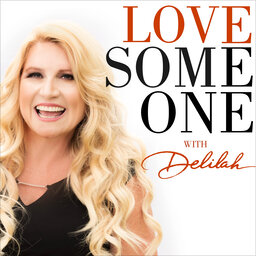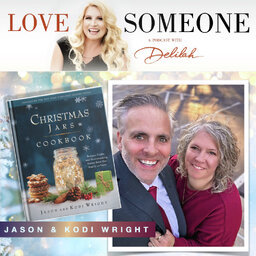DAVID R. MELLOR: "One Base At A Time"
America loves baseball, hotdogs, apple pie and a good 'come back' story. I'm so happy to be providing one of those today! David R. Mellor is the Senior Director of Grounds for the Boston Red Sox baseball team at Fenway Park where he oversees everything that involves the playing field.
As a kid he dreamed of a pro baseball career, but weeks after his high school graduation a car careened out of control ending David's shot at the Big Leagues... or did it? Join David and I as we chat about how he charted a new course, some additional crazy things that happened to him along the way, his "discovery" that he had PTSD, and why he considers himself the luckiest guy alive! ~ Delilah
 LOVE SOMEONE with Delilah
LOVE SOMEONE with Delilah


